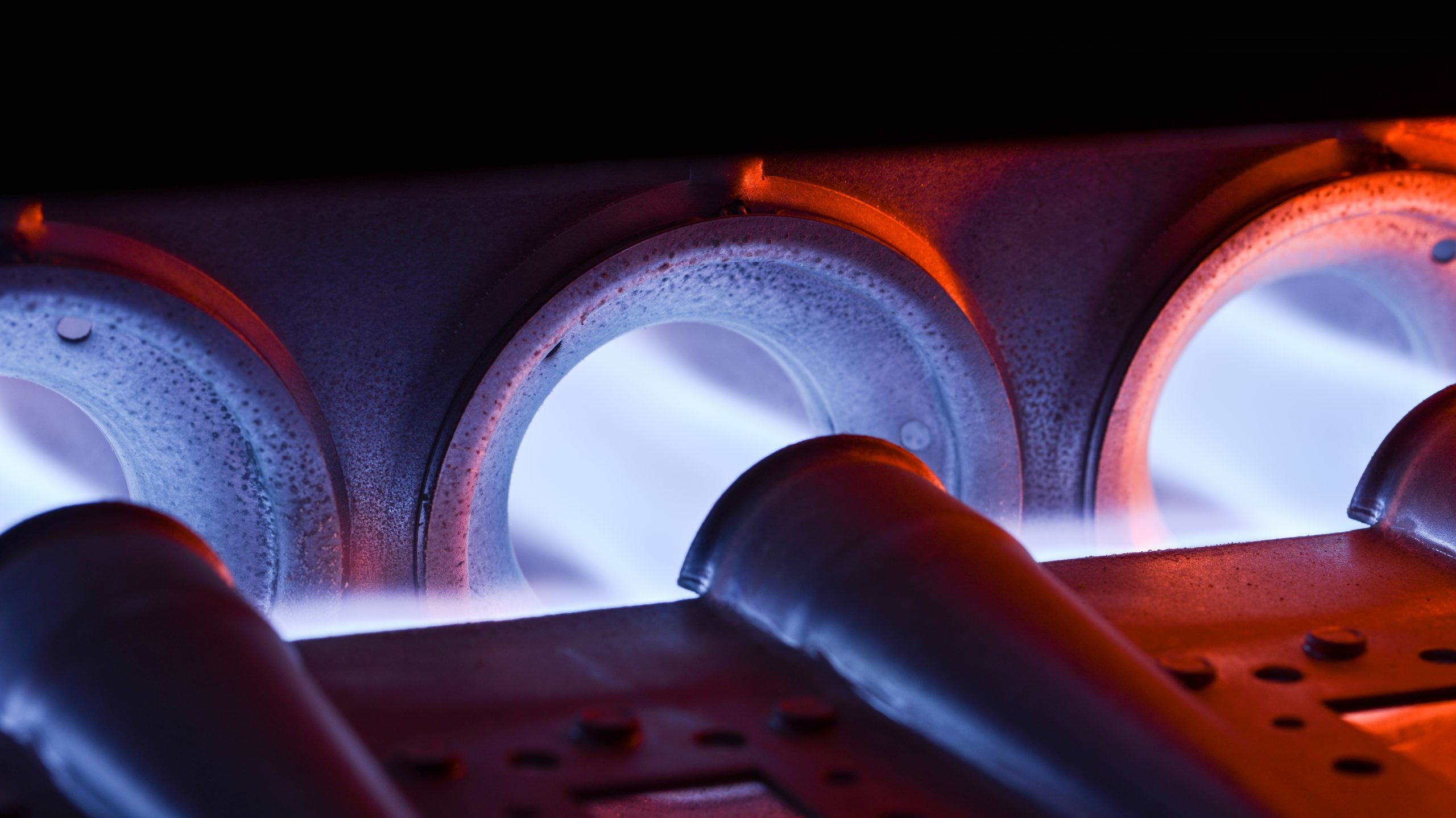- Contact Us: 513-229-0789







You’re at home in the cold Cincinnati winter, but your furnace heat just isn’t working and those energy bills are skyrocketing; it’s time to buy a new furnace. But which furnace type is better? How do you know whether to buy an Electric furnace or a gas furnace?
Today’s blog from Air Authority, your commercial heating repair specialist in Cincinnati, discusses the key difference between a gas and electric furnace.
The main difference between a gas and an electric furnace is the heat source. A gas furnace receives a signal from the thermostat that it’s too cold in the house. An igniter activates gas-powered burners, much like a gas stovetop. The burners heat the air in the combustion chamber. The heat transfers to air in surrounding chambers before blowing through ductwork to the rest of the house. Commercial heating repair technicians look at the burners if there’s a problem with air that’s not warm enough for your building.
Related Post: Why Air Authority Is the Best for Furnace Repair in Cincinnati
An electric furnace contains heating elements that get warm and glow when electricity runs through them, which is a lot like an electric stovetop. Blower fans take the heat generated by the coils and circulate warm air through the house. When the furnace needs more heat, the unit activates more heating elements. Commercial heating repair contractors may need to replace one or more heating elements as the unit ages.
Electricity usually costs more than natural gas. If you live in a location with warmer weather, it makes sense to buy an electric furnace. It’s energy efficient and can provide energy-cost savings in the long haul.
An electric furnace generally costs less to install versus a gas furnace. That’s because there is less labor involved in an install for an electric furnace. Gas furnaces need specialized equipment, and they contain more specialized parts compared to electric furnaces. Commercial heating repair techs can service both types of furnaces.
You need to take into account the fuel savings over time when deciding on whether to invest in a gas or electric furnace. Installation costs are an important factor. However, which systems saves you more on utility bills over time?
Gas costs less than electricity when it comes to heating. This is important if you live in a cold climate like that of Ohio. Gas furnaces are also more efficient at generating and transferring heat.
Electric furnaces generally last longer, many up to 30 years, versus around 20 years for gas models. In general, gas furnaces are more cost-effective over time. Commercial heating repair companies can recommend what type of furnace is right for you based on your situation.
Related Post: How to Decide Between New Furnace Installation Versus Repair
Electric furnaces can last over 20 years. Gas furnaces last between 15 and 20 years.
Electric furnaces are a bit easier to maintain over time as compared to gas-powered furnaces.
Unlike electric, gas furnaces require a carbon monoxide detector to ensure no toxic emissions enter the home.
A gas furnace will heat up your home more quickly than an electric furnace. This is particularly useful during those chilly Ohio winters.
Air Authority’s commercial and residential heating repair specialists can pinpoint the pros and cons of these types of furnaces so you can make the right choice for your home or facility.
Air Authority has decades of experience in the industry. We’re a trusted authority on HVAC systems, and we can handle commercial heating repair on units up to 25 tons. Let us service your building today! Contact Air Authority or call (513) 229-0789 for more details.
© 2024 Air Authority, All Rights Reserved